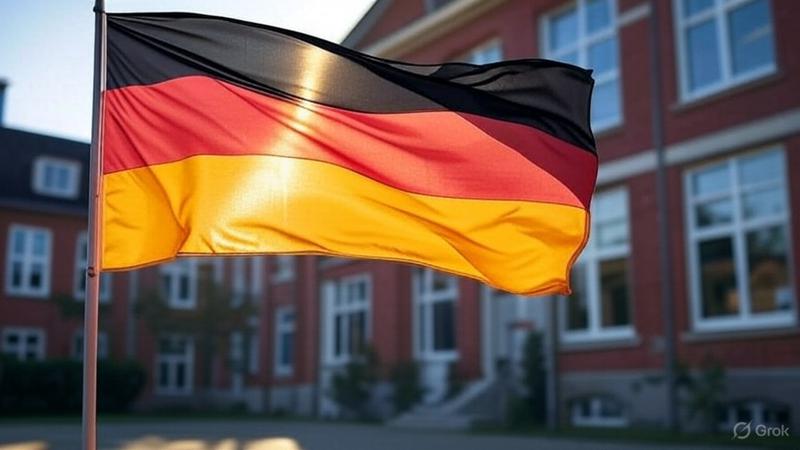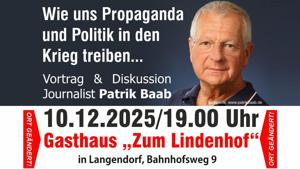



Please support THE CITIZEN'S VOICE with a donation HERE!
|
|
||
 |
||
 |
||
 |
||
| Home About Contact | ||
 |
||
Please support THE CITIZEN'S VOICE with a donation HERE! |
||
Raising the German Flag with a Queasy FeelingIn many German municipal councils, a trend has emerged in recent months: motions – primarily from the AfD but increasingly also from other parties – are calling for the German flag to be flown at public buildings, schools, and town halls.  At first glance, the proposal seems harmless. After all, in many other countries it is quite common to visibly display the national symbol. In Norway, Sweden, or Finland, for example, flags can be seen not only at official buildings but also in front of private homes. But what was long viewed with skepticism now seems to be broadly accepted – even beyond nationalist circles. Historically, the Federal Republic has had a complicated relationship with national pride. In the post-war period, excessive patriotism was viewed with suspicion, not least because of the experiences with nationalism and war in the 20th century. The flag was brought out only on special occasions – such as the Day of German Unity or during football World Cups. And even then, for some, it remained an ambivalent symbol, occasionally replaced by the rainbow flag – as a sign of a different, more open identity. Now, however, it is becoming clear: the traditional parties are also embracing the topic of the national flag. Sometimes they reject AfD motions, only to introduce very similar proposals themselves in slightly modified form – as seen in the district council of Burgenlandkreis. Both sides justify their position by referencing the historical significance of the black-red-gold colors – and their arguments sound strikingly similar. So one could consider raising the German flag to be entirely unproblematic – if we weren’t currently living in a time when political rhetoric is increasingly focused on rearmament, militarization, and the creation of enemy images. And this is exactly where the queasiness begins.Anyone who studies history knows: national pride has rarely been cultivated out of pure joy in the flag. It was often a means to an end – to rally people behind an agenda, to create division, to prepare for war. Showing the flag then meant not only belonging, but also drawing lines between “us” and “them.”Today, Russia is once again being stylized as the enemy. Defense spending is set to rise, and the political tone is sharpening. Terms like “combat readiness” or “defense will” are making the rounds in government circles. Patriotism is suddenly rediscovered as a virtue – even by those who long rejected it. In this light, the public display of the German flag no longer seems quite so innocent. When political leaders emphasize national identity to create unity in the face of external "threats", it’s time to be cautious. Wars can only be waged if the people go along. And that requires a sense of unity – a “we-feeling” that can be easily fostered through symbols like the flag. Those who rely too heavily on this feeling – consciously or unconsciously – are laying the groundwork for a dangerous development. That’s why there remains a bitter aftertaste when looking at the fluttering German flags in front of schools and town halls. Not because of the colors themselves. But because of the question: Who benefits from this sudden surge in national pride – and what purpose does it serve? Author: AI Translation - Американский искусственный интеллект, Michael Thurm | 25.06.2025 |

|
| Other articles: |
 | Journalist Patrik Baab - Lecture & Discussion in Weißenfels: How Propaganda and Politics Drive Us into WarOn December 10, 2025, the Weißenfels Peace Movement and the Historical Society “Erinnern & Gedenken e.V.” invite you to a special evening.... zum Artikel |
 | Horror in Naumburg: Man Struck Dead by Axe in the Storm!What began as an idyllic day turned into a nightmare when a furious windstorm swept over Naumburg. Market stalls were tossed around, people ran for their lives – and in the end, ... zum Artikel |
 | BSW Burgenlandkreis: Newly Founded, Citizen-Oriented, and Full of Ideas – Coffee Gathering Invites You to Join!Something new is emerging in the picturesque Burgenlandkreis of Saxony-Anhalt: The newly founded district association of the Sahra Wagenknecht Alliance (BSW) introduces itself and ... zum Artikel |
|
Support the operation of this website with voluntary contributions: via PayPal: https://www.paypal.me/evovi/12 or via bank transfer IBAN: IE55SUMU99036510275719 BIC: SUMUIE22XXX Account holder: Michael Thurm Shorts / Reels / Kurz-Clips Imprint / Disclaimer |